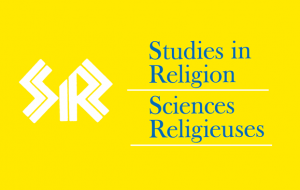Roger B. Alfani, Université de Montréal
« The Role of Three Christian Churches in Conflict Transformation in Goma (1992-2012) »
To tackle violent conflicts, many have focused on state-building approaches at the expense of non-state local religious actors, whose role has received less emphasis and often time a contested role. My research seeks to understand the role of local religious actors in religious peacebuilding in the Great Lakes region of Africa in general and in the city of Goma in particular. In other words, I aim to explore the theology of peace of three Christian churches (Roman Catholic, Protestant, and Revival) and investigate its application in the variety of socio-political contributions in the city of Goma. I argue that the selected three churches play a key role in building sustainable peace. Thus, I employ a qualitative multiple case study for this research.
Raphaël-Mathieu Legault-Laberge, Université de Sherbrooke
« Éducation et (re)construction de l’identité dans les groupes anabaptistes »
Cette recherche tente de cerner comment les groupes anabaptistes du Canada (les amish, les mennonites et les huttériens) parviennent à (re)construire leurs identités en intégrant les exigences publiques en matière d’éducation (éducation démocratique) avec les aspects théologiques propres à leurs cultures particulières (éducation communautaire). L’hypothèse avancée veut que le fait éducatif puisse être contextualisé selon trois niveaux identitaires : l’individuel, le collectif et le sociétaire. Par une étude multi-cas, portant sur le couple socialisation/identité et sur le vivre-ensemble, nous pourrons montrer que chacun des niveaux voit son agencement de l’éducation démocratique et de l’éducation communautaire varier selon diverses considérations.
German McKenzie, Catholic University of America
“A Critical Examination of the Underlying Sociological Theory of Secularization in the West in the Work of Charles Taylor”
Charles Taylor’s account on secularization appears to be a Weber-like view in the issue, aimed to overcome the current polarization of the discussion between “orthodox” and “revisionist” theorists since it affirms, on one hand, there has been a decline in religious belief and practice, as well as Church-State separation, but, on the other hand, religious motivation has remained operative giving birth to new religious forms both in existing churches as well as in new religious movements. Since Taylor blends sociology, history and philosophy in a single discourse, it is important to address his sociological sources to allow a better conversation on the issue of secularization, which to date has been carried on mainly in sociological terms.

